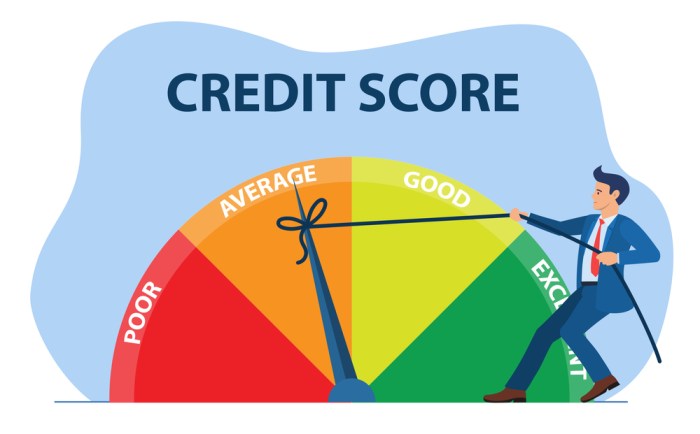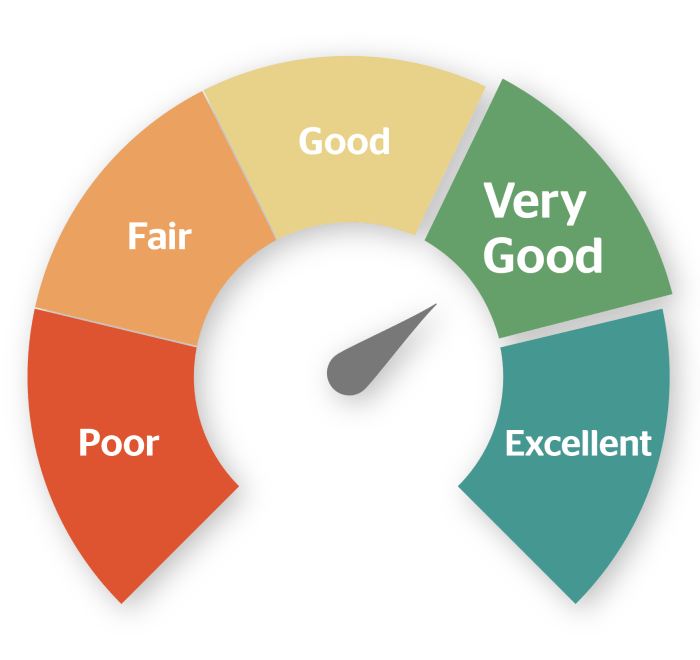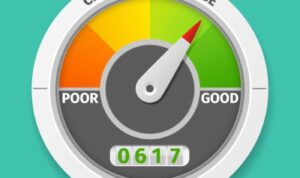With Credit Score Improvement at the forefront, this paragraph opens a window to an amazing start and intrigue, inviting readers to embark on a storytelling american high school hip style filled with unexpected twists and insights.
When it comes to navigating the financial landscape, one key player stands out: your credit score. Understanding how to improve this crucial number can unlock a world of opportunities and set you on the path to financial success. From better loan terms to increased financial opportunities, the journey to enhancing your credit score is one worth exploring. So, buckle up and get ready to dive into the world of Credit Score Improvement!
Importance of Credit Score Improvement
Improving your credit score is crucial for maintaining good financial health. A higher credit score can open doors to better loan terms and lower interest rates, ultimately saving you money in the long run.
Access to Better Loan Terms
By having a good credit score, you are more likely to qualify for loans with favorable terms such as lower interest rates, higher borrowing limits, and longer repayment periods. This can make a significant difference in your ability to afford big-ticket items like a home or a car.
Lower Interest Rates
A higher credit score demonstrates to lenders that you are a responsible borrower, leading to lower interest rates on loans and credit cards. This means you’ll pay less in interest over time, keeping more money in your pocket.
Improved Financial Opportunities
With a good credit score, you may have access to better credit card offers, higher credit limits, and even better insurance rates. It can also impact your ability to rent an apartment, get a job, or qualify for certain services without having to put down a deposit.
Understanding Credit Scores

Credit scores are numerical representations of an individual’s creditworthiness, indicating the likelihood of repaying borrowed money. These scores are calculated based on various factors and play a crucial role in financial decisions.
What is a Credit Score?
A credit score is a three-digit number that ranges from 300 to 850, with higher scores indicating better creditworthiness. It is calculated using information from credit reports, such as payment history, credit utilization, length of credit history, new credit accounts, and types of credit used.
- Payment History: This is the most significant factor influencing credit scores, reflecting whether payments are made on time.
- Credit Utilization: This measures the amount of credit being used compared to the total available credit limit.
- Length of Credit History: The longer the credit history, the better, as it demonstrates responsible credit management over time.
- New Credit Accounts: Opening multiple new accounts in a short period can negatively impact credit scores.
- Types of Credit Used: Having a mix of credit types, such as credit cards and loans, can positively impact credit scores.
Importance of Monitoring and Understanding Credit Scores
Monitoring and understanding your credit score is essential for financial well-being. It allows individuals to track their credit health, identify any errors or fraudulent activity, and take steps to improve their scores. Additionally, a good credit score can lead to better loan terms, lower interest rates, and increased access to financial opportunities.
Strategies for Credit Score Improvement

Improving your credit score is essential for financial health. By following practical tips and strategies, you can boost your credit score and open up more opportunities for loans, credit cards, and better interest rates.
Paying Bills on Time
- Set up automatic payments to ensure you never miss a due date.
- Pay at least the minimum amount due on all your bills to avoid negative marks on your credit report.
- Consider setting reminders or alerts to stay on top of your payment schedule.
Managing Credit Utilization
- Keep your credit card balances low to maintain a healthy credit utilization ratio.
- Aim to use less than 30% of your available credit to show responsible credit usage.
- Regularly monitor your credit card balances and adjust your spending if needed to keep utilization in check.
Credit Limit Increases and Debt Consolidation
- Contact your credit card issuer to request a credit limit increase, which can lower your credit utilization ratio.
- Consider debt consolidation to combine multiple debts into one payment with a lower interest rate.
- Make consistent payments on your consolidated debt to show positive credit behavior.
Common Mistakes to Avoid: Credit Score Improvement
When it comes to credit scores, there are certain mistakes that can have a negative impact on your financial health. Understanding these common pitfalls can help you avoid damaging your credit score and financial future.
1. Repercussions of Late Payments
Late payments on your credit accounts can have a significant impact on your credit score. Payment history is one of the most important factors that determine your credit score, so consistently making late payments can lower your score and make it harder to qualify for loans or credit cards in the future. To avoid this, set up automatic payments or reminders to ensure you never miss a due date.
2. Maxing Out Credit Cards
Maxing out your credit cards can also hurt your credit score. Utilization rate, which is the amount of credit you’re using compared to your total available credit, is another key factor in determining your credit score. Keeping your credit card balances low and well below the credit limit can help improve your credit score. If possible, aim to keep your utilization rate below 30% to maintain a healthy credit score.
3. Applying for Multiple Credit Accounts, Credit Score Improvement
Each time you apply for a new credit account, a hard inquiry is placed on your credit report, which can temporarily lower your credit score. If you apply for multiple credit accounts within a short period of time, it can signal to lenders that you are in financial distress and may be a higher risk borrower. To avoid this, only apply for credit accounts when necessary and space out your applications to minimize the impact on your credit score.
